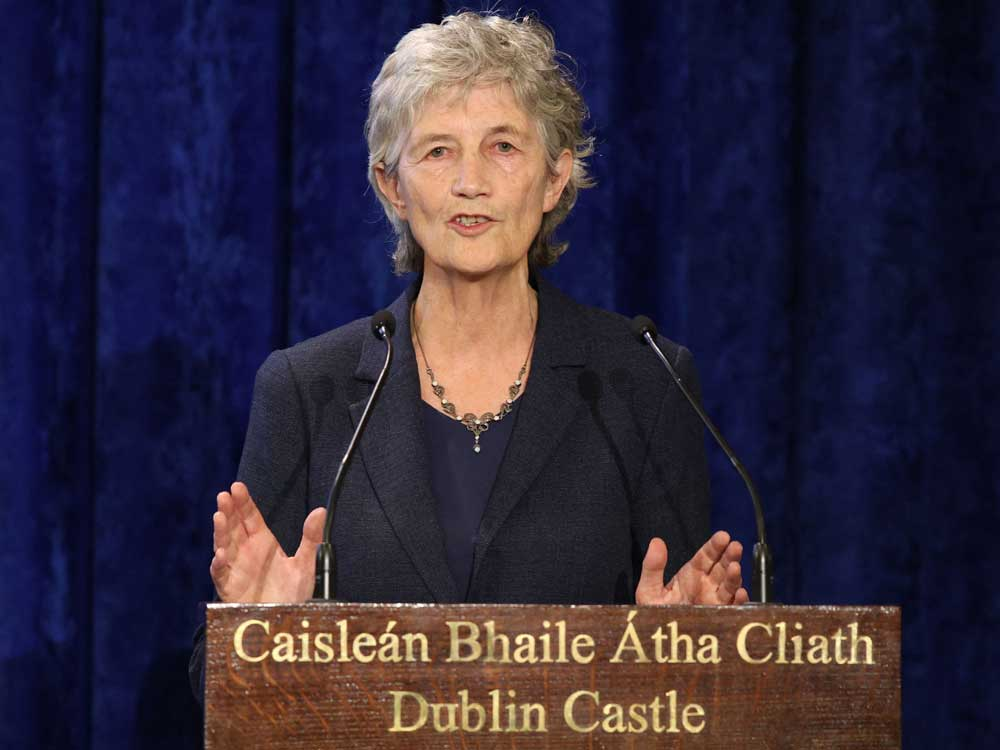Copyright The Oregonian

When Jen’s teenage daughter decided to file a lawsuit against the Oregon Department of Human Services for not protecting her from sexual abuse, Jen’s biggest concern was for the girl’s recovery. Jen worried whether reliving the circumstances would set her daughter back in her own healing. But the girl, who was 15 at the time, wanted to hold the state accountable for failing to adequately follow up on warnings that her legal team says could have prevented the abuse. She thought the lawsuit might help other children, and Jen stood by the decision. Jen never anticipated she would become a defendant in the case herself. In what appears to be a somewhat common practice over the past decade, state lawyers defending the Department of Human Services from claims that the agency was negligent in protecting a child instead turned the blame on the child’s parent, even if the parent had not previously been accused or found guilty of the abuse or neglect. Lawyers from the Oregon Department of Justice, which represents state agencies in court, filed a complaint against Jen in 2023 arguing that she had in fact been negligent because she hadn’t detected or prevented the abuse perpetrated by her former boyfriend, who is now serving a prison sentence for sex crimes against a minor. Jen fought that assertion and a jury sided with her, dismissing the state’s claims. The Oregonian/OregonLive is not using Jen’s full name to protect the identity of her daughter. “I was afraid it was going to destroy me,” Jen, a single mother, said of the state’s lawsuit. “It was going to inhibit my ability to provide for my kids.” The Oregonian/OregonLive found at least 10 cases in the last decade in which the Department of Justice, when faced with a negligence or wrongful death lawsuit, roped parents or caregivers into the suit. The state typically does so by filing what’s known as a “third-party complaint,” defending itself by arguing that other parties are to blame – and that if a jury is considering whether the state is at fault, it should evaluate how culpable the parents are, too. In most of those cases, the Department of Justice went after the parent accused of – or even charged with – harming the child. But in half, including Jen’s case, the state sued parents who were not accused of perpetrating a crime or who disputed any fault. Attorneys for Jen and parents like her argue the state’s legal strategy of pulling so-called “non-offending” parents into a lawsuit is predatory. They say the tactic targets people who typically can’t afford lawyers and further traumatizes parents who are dealing with the grief of their child’s abuse or death. Lawyers who often sue the state in child welfare cases suspect the strategy is designed to help the Department of Human Services decrease its own liability and find additional defendants to help shoulder the cost of a potential payout. The children at the heart of these cases frequently lived with their parents but had been the subject of a tip to the state hotline about their potential abuse. Oregon Department of Justice officials refused to answer questions about the legal strategy, arguing it is confidential because of attorney-client privilege. But some former agency attorneys disputed that Oregon was trying to cut its liabilities and they generally defended the strategy. “It’s to bring in those who share fault,” said retired Senior Assistant Attorney General Todd Marshall, who filed at least one complaint against a relative directly accused of contributing to a child’s death. He argued that it’s important for the state to consider if a third-party shares responsibility. “That’s just being responsible,” he said. “There’s nothing sinister about it.” Many of the cases have settled before a trial, including one earlier this year in which the state awarded $2.5 million to the estate of a teen boy who died in Department of Human Services custody. As part of the settlement, Oregon dropped its complaint against the boy’s biological mother. “They sued a grieving mother after her son died in their care,” attorney Mary Skjelset wrote to The Oregonian/OregonLive. “It was ugly and unnecessary.” The state did not settle the case involving Jen and her daughter. Instead, the legal standoff dragged on for 14 months between the day Jen was named as a defendant and the day in January when a Multnomah County jury ruled that she was not grossly negligent in caring for her daughter. Lawyers for Jen’s daughter alleged the Department of Human Services was warned several times that the teen was at risk of abuse, twice from calls to the state’s child welfare hotline and once by a police report. When state caseworkers and police asked Jen about allegations of inappropriate behavior by her boyfriend, Jen testified that she trusted her daughter, who told her that nothing had happened. The state argued Jen should have known her boyfriend was a threat because of a former allegation he’d been inappropriate with a child. But Jen looked into that vague concern, she said, and didn’t see proof. Jen said during the trial that she was not aware her former boyfriend was grooming and later abusing her daughter until the teen came forward – and when she did, Jen said she immediately took her daughter to the hospital, filed for a restraining order and had the man removed from her home. The jury found that the state was at fault for failing to protect the teen and told the Department of Human Services to pay $1.3 million to a trust managed by a financial conservator for Jen’s daughter, a standard process when a jury awards money to a minor. Judgements for deceased victims can also be paid to relatives like parents or siblings. Jen says the trial caused her stress, triggered nightmares and deprived her of valuable work hours. Both Jen and her daughter think that the state sued Jen to intimidate the girl into dropping her case. “I don’t think that I should have been a part of it,” Jen said. “I wish that (the state) would have seen their own shortcomings and accepted – at least, had some accountability – to where they recognized certain mistakes that they made.” The Department of Justice, now run by Attorney General Dan Rayfield, has declined to comment on case decisions made before he took office in January. All of the third-party complaints were filed before his tenure. Rayfield learned details of Jen’s case earlier this year, as he was getting caught up on the agency’s work, his chief of staff Jenn Baker said. Baker said Rayfield questioned the agency’s strategy to file a complaint against the victim’s parent and told his trial attorneys to stop using that approach without his approval. Rayfield did not think the litigation strategy “aligned with his values,” Baker said. “Our work in (the) child welfare system should focus on protecting children and strengthening families,” Rayfield said in a written statement to The Oregonian/OregonLive. “The state’s role is to protect vulnerable children while maintaining the trust and cooperation needed to help families heal and thrive.” He called ending or reducing the strategy of suing non-offending parents a step toward “a more compassionate, child-centered approach to justice for Oregon.” Attorneys raise alarm When attorneys representing Oregon children have filed negligence or wrongful death claims against the Department of Human Services, some have known it was possible the state would sue the child’s parent or parents. “They’ve been doing this for a decade, where they’re pointing the blame on anyone but themselves,” said attorney Paul Galm. In 2015, Galm represented a father pulled into a lawsuit after his son died. The boy, Coltin Jacob Salsbury, was killed when his mom’s boyfriend threw the 2-year-old into a toilet, causing major injuries. The boy’s estate sued the Department of Human Services and the city of Seaside, alleging that both a police officer and a state caseworker failed to quickly and properly follow up on reports that the boy was being abused. The state sued several people in response. It sued Joshua Howard, the man convicted of manslaughter in the boy’s death. It sued the boy’s mom, who let Howard babysit, court documents say. And it sued the boy’s dad – who lived hours away from where the boy was killed and had told the police he feared the toddler was in danger. “When they sue the person who actually did the abuse, that’s one thing,” Galm said. “It’s more understandable, than say, the Salsbury case, where they sue bio dad who three months earlier actually reported suspicions.” The state ultimately settled the case, paying the boy’s estate $750,000; Seaside paid $250,000 and the suits against the parents were dismissed, attorney Josh Lamborn said. The settlement money was set aside for Coltin’s half-brother, Lamborn said. To be sure, some of the parents sued by the state had previous involvement with the child welfare system and had been accused of or found culpable of previous neglect, even if they could credibly rebut the accusations in the state’s complaints. “It’s unlikely that people are going to have a completely clean history,” said attorney Amber Kinney, who represented one parent who the state came after with a third-party complaint. But when the state had previously worked to support a family, it feels like “more of a betrayal when they turn around in this sort of antagonistic way and place blame,” Kinney said. Luke Stanton, a former senior assistant attorney general in the child advocacy section at the Oregon Department of Justice who now litigates cases for children who have been abused, was a judge before he worked for the Department of Justice. He said the strategy of suing parents fits into a broader pattern of the state deflecting blame for harm to children on its watch. Latest local politics stories Supreme Court decision on accepting mail-in ballots could affect Oregon’s elections system Gov. Tina Kotek signs controversial transportation funding plan as deadline approaches Oregon lawmakers quietly hire their family members with taxpayer money — and little oversight See how big a refund you’ll get from Oregon’s $1.4B kicker next year Oregonians have access to full November food stamp benefits, Kotek says He pointed to the Wyatt v. Kotek class action case over failures in the foster care system, which dragged on for five years before the state settled it with an improvement plan. The lawsuit cost taxpayers more than $30 million in legal fees. “They will fight these cases even though the facts as to the abuse and neglect that were missed for whatever reason are glaring,” Stanton said. “And so they further perpetuate the trauma that occurs to these families and individuals, these children. It’s sad. It’s dispiriting.” He said Oregon lawmakers should consider establishing a mediation process for cases involving the Department of Human Services, similar to the way some medical malpractice suits get resolved. In an email, Department of Human Services spokesperson Jake Sunderland said state law gives the Oregon Department of Justice “sole authority” for determining legal strategy when it represents that agency. The human services department did not respond to the critique that it deflects blame in long drawn out legal cases. But Sunderland said the agency is glad Rayfield decided to restrict the use of complaints against parents. “This practice is not trauma informed and does not align with our values as an agency,” Sunderland wrote. “We are grateful that the Oregon Department of Justice has decided to end this practice and we look forward to further collaboration … as we work together to support the safety and wellbeing of children and families in Oregon.” ‘I was so stressed out’ Kinney, the lawyer who has represented parents in child welfare cases, took on the case of Jonicia Clay, a 24-year-old woman whose 4-year-old son Jhorden was killed in 2023. Police accused Jhorden’s now 22-year-old father of beating the boy to death in his Portland home. He pleaded not guilty and is scheduled to face a jury early next year. Jhorden’s estate sued the Department of Human Services and the city of Portland, alleging that Jhorden died because the state and Portland police failed to appropriately follow up on Clay’s warnings that her son was in trouble. Clay had allowed the boy to see his father, the lawsuit says, but the father refused to give him back. Clay told Portland police officers that she was afraid for the boy and showed them pictures of an injury on his head that she saw over video. But in doing welfare checks, the police didn’t speak with Jhorden directly, take him for a medical exam or return him to his custodial parent, the suit says. A Department of Human Services caseworker closed a follow-up report from one of those officers without looking into it further – a mistake, the state later conceded in a review of Jhorden’s death, because the concerns warranted a child protective services assessment. Jhorden died about three weeks after he left his mom’s custody. He had acute bruises that suggested physical abuse, the lawsuit said, and a medical examiner ruled his death a homicide. Throughout the ordeal, Clay asked repeatedly for help, according to the lawsuit. She spoke to two police officers. She tried to file a restraining order to protect her son but was denied. A Department of Human Services review after Jhorden’s death found that any allegations Clay had abused the boy were “unfounded.” And yet, in response to Jhorden’s lawsuit, Department of Justice attorneys filed a complaint in 2024 accusing Clay of contributing to Jhorden’s death because she let the boy see his father, who allegedly had a history of violence. The Department of Justice also sued Portland police, the boy’s father and his paternal grandmother who lived at the home where the alleged abuse occurred, the suit claims. Kinney, who picked up Clay’s defense, said the complaint was “confusing and overwhelming and scary” for the grieving mother, who was working with prosecutors and law enforcement as a witness in her son’s murder case. When Clay learned the state opened a case against her, she felt like harming herself, she said. She hadn’t expected Jhorden’s dad would hurt him, she said, and being blamed by the state for negligence made her question herself as a parent and a person. “I literally used to cry myself to sleep about it, ‘cause I was so stressed out,” Clay said. “... I just felt like it would ruin my life more than it was already ruined.” Sometime after the state opened its suit against her, Clay learned that she was pregnant again. This summer, her baby was born early. Clay said she thinks her health was impacted by the stress she endured, including the ongoing legal action against her. In August, the state dismissed its case against Clay, after Kinney said she asked for documents that she thinks would have shown Clay was not at fault. The state also paid more than $10,000 to cover Kinney’s attorney fees. “I feel lucky, but I am also very frustrated,” Kinney said. “If they really felt that they had a case against mom, they would have pursued it. But when mom gets a lawyer and the lawyer starts looking into it, they immediately dismiss it.” Clay, like Jen, said she believed the state was trying to pressure her to withdraw her support for the lawsuit that Jhorden’s estate filed. It angers her to know she’s not the only parent who faced this kind of ordeal. “They’re supposed to help people that need it,” Clay said of the state. “And to turn around and kind of blame the parents – in a way we are victims too, we lost our children or whatever the case may be – is really messed up. It’s wrong.” ‘Very difficult to handle’ Sean Riddell, Jen’s attorney, said he’s glad the state has reevaluated its practice of suing non-offending parents. But he’s not entirely satisfied. While working on Jen’s case, Riddell said he tried unsuccessfully to decipher who made the decision to sue her. “There is a nameless, faceless government agent who decided to sue the mother of a sex abuse survivor,” Riddell said. “And we don’t know who that government agent was and if that government agent has been held to account.” Several layers of state trial attorneys and supervisors, including top officials in the office of the previous attorney general, Ellen Rosenblum, would have been responsible for making that decision, in consultation with the Department of Human Services, according to spokespeople and employees at the Department of Justice. Rosenblum, a Democrat, chose not to run for reelection in 2024 after 12 years in office. The Department of Justice attorney assigned to each lawsuit would have had to ask permission from their attorney-in-charge and the state’s chief trial lawyer before they could file a third-party complaint, said spokesperson Jenny Hansson, who joined the agency in January after Rosenblum left. Still, former chief trial lawyers Sheila Potter and Steve Lippold say, department practice was that the decision had to be approved by the deputy attorney general or the AG herself. Rosenblum told The Oregonian/OregonLive she doesn’t remember being asked to consult on legal strategy in these kinds of cases. “If I had… I would have considered each case on a case-by-case basis,” Rosenblum wrote in an email. Lisa Udland, deputy attorney general from late 2021 until this year, wrote that she no longer works at the Department of Justice and doesn’t have access to case information on “decisions made years ago,” so she couldn’t say whether she signed off on third-party suits or why. She served as deputy when the Department of Justice filed complaints against Jen, Clay and the parent whose child died in Department of Human Services custody. “The death of a child is heartbreaking, regardless of the circumstances,” Udland wrote in an email. “Any resulting legal case presents complex facts and difficult decisions for the state agencies involved.” Fred Boss, who was deputy attorney general prior to 2021, did not return messages seeking comment. Six assistant attorney generals who have filed lawsuits against parents did not return several calls from The Oregonian/OregonLive seeking comment or said they could not speak on the matter and referred questions to Hansson. Hansson said it “wouldn’t be appropriate” for Rayfield’s team to speculate on decisions made during Rosenblum’s tenure. Lippold, who ran the trial division prior to 2024, emphasized that state law calls for shared liability if more than one party is found responsible for wrongdoing. Parents who are found culpable but can’t pay a legal judgment could ask for a “reallocation of fault” and the state could ultimately end up paying their portion, Lippold added. He said the cases were generally “very difficult to handle.” “No decision about such a thing would ever be made in a vacuum. It would be very carefully looked at, weighed, fought over and discussed not only within the AG’s office, but also with DHS,” Lippold said. “Those are not decisions taken lightly.” Nightmares Jen started having nightmares prompted by the trial about her daughter’s abuse. They often featured Drew Baumchen, the assistant attorney general who defended the Department of Human Services in her daughter’s case, and a moment during the trial when Baumchen presented her with a picture of her daughter’s convicted abuser. It felt like an ambush, Jen said. The judge had to pause the trial so Jen could collect herself. “I feel like that was really unnecessary,” Jen told Baumchen when she returned to the stand. Baumchen did not respond to emailed questions about Jen’s concerns and by phone referred all questions to the DOJ spokesperson, who declined comment. For several days this January, Baumchen battled it out in the courtroom with Riddell, Jen’s attorney, and Amity Girt, who represented Jen’s daughter. Girt laid out a pattern of what she said was the Department of Human Service’s failures to act on calls to the state’s child abuse hotline from the girl’s biological father, who alleged that mom’s boyfriend was abusing her. The state claimed the Department of Human Services acted reasonably and could not have predicted the abuse that occurred a year later and led to the conviction. Baumchen argued instead that Jen had a first-person view of her boyfriend’s behavior and was negligent in failing to spot it or intervene. Riddell, meanwhile, defended Jen as a loving and attentive parent who checked in with her kids over dinner every night, cooperated with state investigators and turned in the boyfriend the instant she learned of his alleged crimes. After police arrested the man, the state left Jen’s two minor daughters in her care. Until the lawsuit was filed, Riddell said in court, state officials had not questioned her parenting. The state was using Jen to try to get a discount on its damages, Riddell told the jury – if the state was found negligent, it wanted the jury to decide how much negligence Jen was guilty of too. In a court filing, Jen’s daughter wrote that she felt “immediately intimidated and worried” for her mom when she learned the state had filed a lawsuit against Jen. She called it an “unfair and groundless flex of power.” Jen’s daughter considered dropping the case to protect her mother, Jen said. But part of her daughter’s healing has been strengthening her resolve, Jen said – and while her daughter was nervous about going forward, the teen felt like she couldn’t just let the injustice against her disappear. Winning at trial has boosted the girl’s confidence “that she has a voice and she doesn’t have to back down,” Jen said. For Jen, the pain of the ordeal still lingers. She’s in therapy again, fighting feelings of panic that the trial brought back – much like those she had to combat after her daughter’s initial abuse. She still has days where she wakes up overwhelmed and cries for no particular reason. “It was just having to deal with the after effects,” she said. “Feeling the anger, the sadness, the rage, of, ‘Why would (the state) even want to do this?’”



